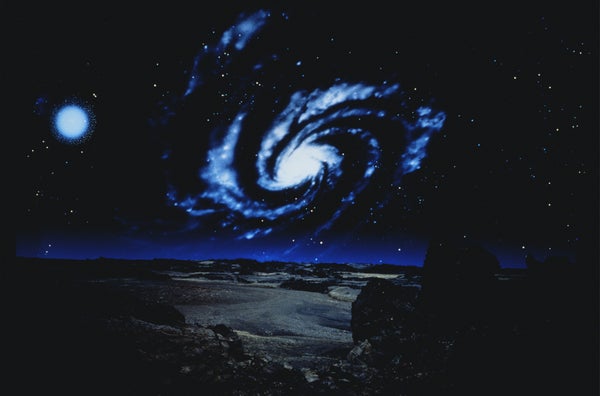Astronomers have catalogued more than 3,500 exoplanets since the first one was found in 1988.
“Part of the revelation and the revolution that’s going on is that actually planets are incredibly abundant and that means that potential incubators for life are everywhere in the universe.”
Columbia University astronomer and Scientific American blogger Caleb Scharf. He was part of a conversation about life in the universe at N.Y.U. on March 22nd. At which he was asked what our new understanding of the abundance of exoplanets out there does to the odds of finding life.
On supporting science journalism
If you're enjoying this article, consider supporting our award-winning journalism by subscribing. By purchasing a subscription you are helping to ensure the future of impactful stories about the discoveries and ideas shaping our world today.
“What it definitely does is increase the odds of us finding an answer. I think. I think that we can say with some confidence. Because we didn’t know that there was so many planets around other stars 20 years ago…and that also means that plenty of them are pretty nearby to us. So what it definitely alters are the odds on us getting some answers.
“Because suppose planets were actually very rare. Suppose the solar system was sitting here and then you had to go a thousand light years to the next planetary system. That would be difficult for us if we wanted to study those planets because they’re a long way away. So I’m doing the politician thing of kind of circling around the question here. So it definitely, the abundance of planets improves the odds of us obtaining an answer, which is huge. Don’t underestimate that. What does it mean for the actual probability of there being other life out there and how often it occurs? If I’m completely honest with you—we don’t know.”
You can watch the full 90-minute discussion featuring Scharf, Scientific American’s Lee Billings and Wall Street Journal science writer Robert Lee Hotz at the N.Y.U. Journalism Web site. Just go to journalism.nyu.edu and look for the series of Kavli Conversations on Science Communication.
—Steve Mirsky
[The above text is a transcript of this podcast.]

